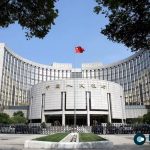
KMC Takes Stride Towards Environmental Sustainability with Ban on Plastic Christmas Trees

In a significant move to promote environmental sustainability, the Kathmandu Metropolitan City (KMC) has imposed a ban on the use of plastic Christmas trees for the upcoming festive season. The metropolis has swiftly taken action by removing plastic Christmas trees from display in supermarkets across Kathmandu.
This latest decision comes on the heels of KMC’s recent move to prohibit the use of plastic flowers during the Tihar festival, demonstrating the city’s proactive approach to addressing environmental concerns and emphasizing eco-friendly practices during various celebrations.
Christmas, a globally observed annual festival on December 25, commemorates the birth of Jesus Christ. While deeply rooted in religious and cultural significance, the holiday has evolved into a widely celebrated occasion that transcends different traditions.
The Christmas tree, a notable symbol associated with the season, traditionally adorned with lights, ornaments, and festive decorations, has faced scrutiny due to its environmental impact. The ban on plastic Christmas trees aligns with KMC’s commitment to sustainable practices and reducing plastic waste in the city.
Beyond Christmas trees, the season is characterized by the exchange of gifts, festive meals, and the display of nativity scenes. In many cultures, Christmas embodies a spirit of joy, generosity, and quality time spent with loved ones. KMC’s decision is a positive step towards ensuring that these celebrations are not only joyous but also environmentally responsible.
As the festive season approaches, the ban on plastic Christmas trees reflects a growing global awareness of the need for eco-friendly choices, contributing to a greener and more sustainable future. Kathmandu Metropolitan City’s commitment to environmental stewardship sets a commendable example for communities worldwide, encouraging a shift towards more sustainable practices during festive occasions.
- PM Oli Hails Thailand Visit and BIMSTEC Summit Participation as Fruitful and Impactful
- PM Oli Vows to Deepen Nepal-India Relations Following Productive Talks with Indian Counterpart
- Kathmandu Chokes on Toxic Air as Health Concerns Mount
- Myanmar Earthquake Death Toll Surpasses 3,300, UN Calls for Global Support












Comments